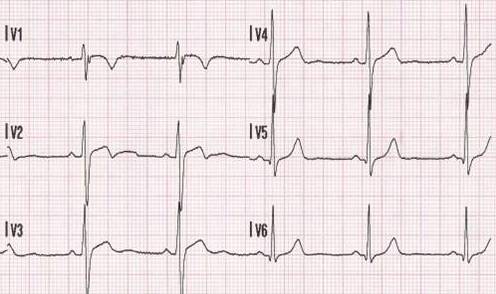Heart check-ups over the phone a success for NHS
Telemedical ECG tests, already proven to work in the private sector, are now being taken up in parts of the NHS with successful results.

A trial of healthcare technology which can check patient's hearts over the telephone has proven to be a success, with roll-outs in GP surgeries throughout the Greater Manchester region.
The telemedical electrocardiogram (ECG) service has finished the first year of a three year pilot. The key feature is that patients can have a heart check-up at GPs using a specialised ECG machine, with readings being transferred over the telephone. These results can be examined by an expert on the other end of the line who will be able to interpret the results and decide on the required course of treatment.
It has proven to save money and resources for the NHS because it avoids immediate referrals of patients with non-acute chest-pain symptoms. The results over the 12 months showed that 58 per cent of non-urgent cases would have been sent to hospital without the new ECG treatment. This equated to around 2000 referrals which weren't needed.
"Preventing such a huge percentage of immediate patient referrals to secondary care helps reduce the burden of cardiac care on our local hospitals," said Karen Gibbons, service improvement manager for Greater Manchester and Cheshire Cardiac and Stroke Network, who is supervising the pilot.
It is currently in use in 10 Primary Care Trusts (PCTs) with 150 surgeries across the Greater Manchester region. Broomwell Healthwatch, who created the technology, said that if the service was translated nationally across the UK's 10,500 surgeries it could prevent up to 432,000 unnecessary referrals each year and save millions of pounds.
It has already been used in the private sector at organisations such as oil rigs and shipping lines, where it was necessary to monitor health without having to be transported to hospital.
"The NHS, with its culture and how it was structured, was always going take longer," said commercial manager Bill Hulledge at Broomwell Healthwatch, who designed the technology. "With the private sector it is used to monitor health of employees, particularly in areas where it is remote. They don't have highly qualified cardiologists on an oil rig and the cost of evacuating somebody is vast."
Get the ITPro daily newsletter
Sign up today and you will receive a free copy of our Future Focus 2025 report - the leading guidance on AI, cybersecurity and other IT challenges as per 700+ senior executives
"We found it generally very much easier to work with private sector health people. Typically they would talk to us, come and visit us, we demonstrate the equipment, they go and think about it, we make a proposal and that would be it in six months."
-
 Westcon-Comstor and Vectra AI launch brace of new channel initiatives
Westcon-Comstor and Vectra AI launch brace of new channel initiativesNews Westcon-Comstor and Vectra AI have announced the launch of two new channel growth initiatives focused on the managed security service provider (MSSP) space and AWS Marketplace.
By Daniel Todd Published
-
 Third time lucky? Microsoft finally begins roll-out of controversial Recall feature
Third time lucky? Microsoft finally begins roll-out of controversial Recall featureNews The Windows Recall feature has been plagued by setbacks and backlash from security professionals
By Emma Woollacott Published